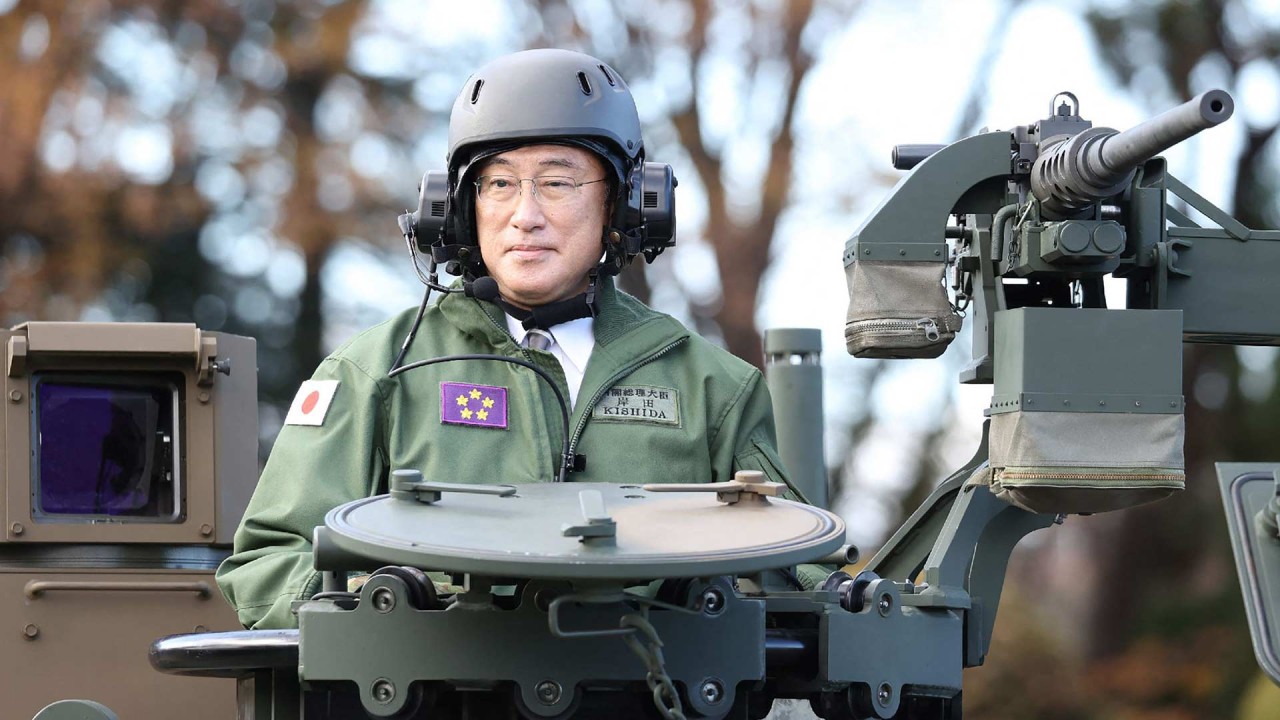
Trump-era hawk wants US to ‘prepare for limited war’ with China over Taiwan
- Former deputy assistant defence secretary Elbridge Colby outlines his prescription for how to win a conflict in book which calls for ‘Asian Nato’
- Its main aim should be to defend Taiwan from mainland attack he says, calling for an end to US policy of strategic ambiguity
If the US is to win a war with China, it should direct most of its military resources to the Indo-Pacific and form an Asian Nato to prevent mainland forces from setting foot on Taiwan.
Many geopolitical observers are expecting the self-ruled island to be at the centre of any actual conflict if there is a war this century, with US-China rivalries playing out in evermore expansive areas.

For Colby, a Pentagon official during Donald Trump’s administration, a major war between the two countries is becoming ever more plausible. In response, he outlines a “denial defence” strategy which he says should be America’s playbook.
In Colby’s view, China is seeking to become a regional hegemony and will do so, if not actively stopped by the US. “The best strategy” that China has, he writes, is to capture a vulnerable US ally or quasi-ally, which he identifies as Taiwan.
Unification with Taiwan has been a stated goal of China’s ruling Communist Party since 1949, with Chinese President Xi Jinping vowing to take the island back “by force” if necessary.
For decades, Washington has pursued a policy of strategic ambiguity, refusing to state whether it would defend the island against an attack from the mainland, to deter unilateral moves from both Beijing and Taipei, which might declare independence.
Unloved but essential: 40 years on, the durable Taiwan Relations Act
The confusion coincided with record-breaking numbers of PLA military jets flying towards Taiwan’s air defence identification zone.
During their virtual summit in November, Xi warned Biden against encouraging Taiwan independence, calling it “extremely dangerous, just like playing with fire”.
While both leaders have explicitly said they want to avoid conflict, questions raised regarding an escalation of conflict over Taiwan have not been settled.
Is an armed conflict between the two powers unavoidable? What might a war look like if it did break out? What are the chances of winning for each side?
Is war between China and the US inevitable? What history tells us
In Colby’s view, the US and its allies need to prepare for military conflict. Known as a hawk among Republicans, he recommends a “limited war” that would seek to cause the least upheaval to the region.
“America’s best military strategy is a denial defence, or a strategy that seeks to deny China’s ability to use military force to achieve its political objectives,” he writes. According to Colby, Beijing’s objectives include seeking hegemony over the world’s most important region – Asia.
“A defence strategy must prepare the US and its allies and partners to fight and achieve their aims in a limited war against China.”
He calls for an “anti-hegemonic coalition” made up of alliances and other partnerships, listing potential parties as Japan, India, Australia, Vietnam, the Philippines, South Korea, Indonesia, Malaysia and Taiwan.
If the coalition failed to “deny” China’s seizure of Taiwan, China could potentially take over the Philippines and Vietnam, Colby writes. In his view, an attack on the island would meet a “limited war” response, with no motivation on either side to escalate.
Colby calls for the US to reduce its military commitments in both Europe and the Middle East, and for stronger military backing from Japan and Britain. He also says it is time to abandon strategic ambiguity over Taiwan, to boost Washington’s “differentiated credibility”.
“Half-hearted commitments are therefore ill-advised in the face of an aspirant like China,” he writes. “But ambiguity is ill-advised because it implicates the quasi-guarantor’s credibility.”
Colby ends the book by saying it was written “in very high respect” for China and that the US would not challenge its way of governance, its ideology or try to dominate it – as long as it did not become a regional hegemon.
Zhao Tong, a senior fellow at the Carnegie-Tsinghua Centre for Global Policy in Beijing, said China would hardly perceive Colby’s strategy as one of defence – it would be likely to cause misjudgments on both sides, increasing the likelihood of precipitated war.
“This, I am afraid, is a serious misread of Chinese policy that would also cause serious misreading from the Chinese side,” Zhao said.
“The US may think their strategies aim at keeping things at status quo, but Beijing has already perceived Washington’s moves as preventing the national rejuvenation of China, and attempting to break China’s commitment of a “peaceful rise,” he said.
Zhao added that Colby’s suggestion a Chinese military plan post-unification with Taiwan could be an overthinking or misreading of the situation.
“If Washington adopts what Colby is proposing, such as strengthening the alliance system in the region, and be more clear in their backing in defending Taiwan, all these would surely be understood as direct and targeted attacks at China,” he said.
“This could even precipitate war.”
China to prioritise Southeast Asia with upgraded relations, development aid
But some of Colby’s playbook appears to be making its way into Washington’s policymaking.
The US has been boosting relations with its allies, and forming or reviving new ones in the region – including the Aukus security pact with Australia and Britain, and the Quadrilateral Security Dialogue with India, Japan and Australia.
But Colby’s suggestions about bringing other countries on board a military coalition seem less likely, with Beijing upgrading its ties with the Association of Southeast Asian Nations last month to “comprehensive strategic partnership”.
Seoul and Beijing are also in regular talks over a formal declaration to finally end the Korean war, an issue of vital strategic significance. And this week China announced its first joint medical support military exercise with neighbouring Vietnam.


